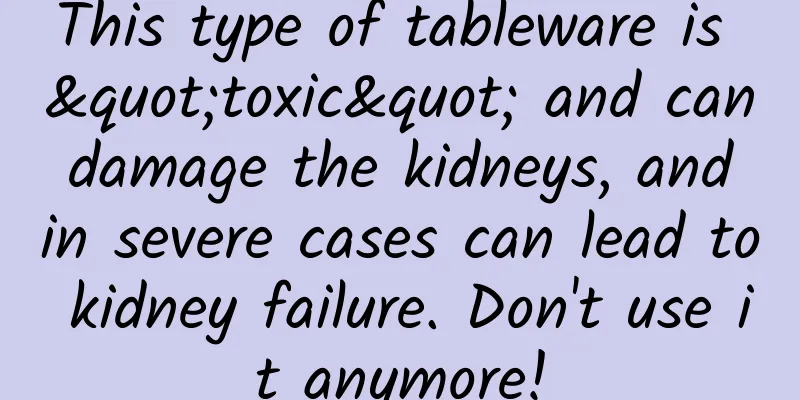Have you taken calcium supplements today? Where does the calcium we take go?

|
If the doctor told you that you might be calcium deficient, would you believe it? After all, we all pay attention to healthy eating, and we even have some bone soup from time to time, bask in the sun, and take calcium tablets more actively than clocking in at work. How could we still be calcium deficient? Is he fooling us? Don't tell me, this may be more real than the embroidery needle used by the old lady. Please listen to me and see if this is the case. Calcium is a good thing. In nutrition, it is classified as a macronutrient necessary for the human body. Its role is like the bricks used to build high-rise buildings; in a small sense, it is indispensable for all our physiological functions. For example, the enzymes used in our body to digest food and blood coagulation are indispensable. Of course, 99% of the calcium in the body is in the bones. So some people also call it the "foundation of life" and the "guardian of bones", which shows that it is really important to our health. So are we really calcium deficient? Let's look at a set of data first. According to the "Survey Report on Nutrition and Health Status of Chinese Residents", the average daily calcium intake of Chinese residents is only 388.8 mg per standard person. You should know that we need 800 mg of calcium per day. According to this standard, many people do not meet the calcium intake requirement. If you want to know why we are calcium deficient, you must understand how it enters the body. Calcium is widely present in nature, whether it is in stones, soil, sand, or even a grain of dust. But after all, we don’t have an iron stomach, so we can only use food and water. However, the calcium in food alone is definitely not enough, because the absorption rate is too low, about 15%, and more calcium is actually regarded as waste. Therefore, no matter how much calcium you eat, it is useless and you may still be calcium deficient. If vitamin D is present, the situation will be different. You should know that they are the "Haier Brothers" in the nutrition world. They can keep the intestinal gate unobstructed and the absorption rate can be doubled. Do you think everything is fine now? You are just thinking too simply. The calcium is present and absorbed, but after it enters the blood vessels, it has no idea where to go. It has no idea which bone is lacking calcium. Some may find the right door and be "built" into the bones by osteoblasts, some may become stones, and some may wander around doing nothing and finally regenerate. How can it be deposited in the bones? This requires a magical nutrient - vitamin K. Vitamin K is a member of the vitamin family. It has many functions, one of which is to "introduce calcium into the bones", that is, to guide the calcium in the blood to be accurately deposited on the bones. Of course, many nutrients are involved, such as potassium, which acts as a "bodyguard" to reduce the excretion of calcium by the kidneys, and magnesium, which plays a synergistic role in deposition. To sum up, if you want to avoid calcium deficiency, a balanced diet is the prerequisite. Eat more calcium-rich foods, such as eggs, milk and meat. Drinking bone soup every day is useless because it only contains oil and no calcium. In addition, you should also pay attention to supplementing vitamin D and other related nutrients, exercise moderately, stimulate bones and increase calcium utilization. As for whether you are calcium deficient, the most reliable way is to check your bone density. Don't think that you are fine just because you are young and your legs don't cramp. If you have one or two of these risk factors, such as unbalanced diet, staying up late, drinking, smoking, etc., you may be calcium deficient. Especially for those who are about to enter menopause, the change in hormone levels makes them more likely to be calcium deficient. Source: Science Popularization China Author: Zhang Yu, PhD in Nutrition Review | Zhong Kai Director of the Kexin Food and Nutrition Information Exchange Center, National Food Safety Risk Assessment Center |
<<: AppData: As of December 2011, Facebook mobile app MAU exceeded 300 million
Recommend
What to eat during menstruation to detoxify
In addition to paying attention to some basic hea...
Are endometrial polyps easy to treat?
Endometrial polyps are a very common gynecologica...
Can breast nodules be cured?
Any breast health risk or disease needs to be det...
Pregnancy and diarrhea
There may be many symptoms in the early stages of...
Correct emergency treatment after burns
Burns, as a common accidental injury in daily lif...
Having sex within one month after abortion is very harmful
Every woman has the right to pursue love, but if ...
How to delay menopause, six lifestyle habits to delay menopause
Generally speaking, after women reach the age of ...
[Medical Q&A] Do you need a tetanus shot if you cut your hand while cutting vegetables?
Planner: Chinese Medical Association Reviewer: Gu...
Woman with pain on left upper thigh
Pain in different parts of the human body implies...
Vomiting and leaking urine during pregnancy
After a woman becomes pregnant, she will go throu...
What to do if there is less amniotic fluid in the fourth month of pregnancy
Everyone knows that the fetus lives in the amniot...
How to quickly defecate during constipation in pregnant women
A pregnant woman is the most caring person in a f...
What are the dietary supplements for irregular menstruation?
In life, many women will experience irregular men...
Is lotus root powder nutritious? How to tell whether lotus root powder is pure or not?
Lotus root powder is a traditional nourishing foo...
Advantages of Embryo Transfer
In vitro fertilization first began in the 1980s, ...









